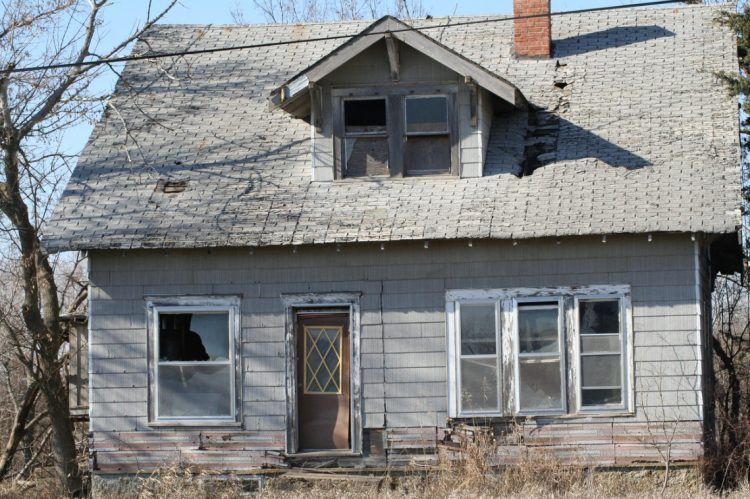Are you wondering how to set an accurate price for a home in rough shape? Selling a house in poor condition presents unique challenges, primarily in setting a price that reflects its current state and potential market value. I will provide tips for effective pricing strategies for such properties, unpack the factors influencing their valuation and offer guidance on marketing them effectively.
From thirty-eight years of experience selling homes in lousy condition, I have found that they are more challenging than their turnkey counterparts. Houses in poor condition have a smaller buyer pool, which makes pricing them correctly all the more crucial.
Let’s examine what you should know.
Understanding the market for houses in poor condition
Defining poor condition
A house is typically considered in “poor condition” if it necessitates significant repairs or renovations, including structural damages, outdated systems and extensive wear. Recognizing the degree of disrepair is crucial as it directly impacts valuation.
Identifying your buyer
The primary buyers for distressed properties are often real estate investors and individuals looking for a project home. Knowing your audience is essential, as their expectations and investment thresholds will influence how you price and market the property.
Market dynamics
The local real estate climate—including the supply and demand for fixer-uppers, the prevalence of foreclosures and typical market times—also affects pricing strategies.
A seller must understand these elements to set a realistic and competitive price.
Setting a competitive price
Starting with a fair market analysis
A competitive price starts with a fair market analysis. This analysis compares your property to similar ones in better condition and adjusts for repair costs. This comparison helps set a baseline that reflects the property’s market standing and potential.
Consider the cost of repairs
An accurate estimate of repair costs is crucial for setting a fair price. Buyers will deduct these costs from their offers so providing them with precise and transparent estimates can justify your asking price.
Pricing slightly below market value
Sometimes, pricing a home below market value can spark a bidding war, potentially raising its final sale price. This strategy can be especially effective in markets with high demand but low supply of homes.
Utilizing professional appraisals
Professional appraisals can add credibility to your pricing strategy. Appraisers consider the property’s damage and potential value post-repair, providing a more grounded figure to base your price on.
Factors affecting the valuation of distressed properties
Location
Location remains a pivotal factor in real estate, significantly impacting the value of houses in bad condition. Properties in sought-after neighborhoods often fetch higher prices despite needing substantial repairs, as buyers are willing to invest more for a desirable location.
Conversely, properties in less desirable areas might struggle to attract offers, regardless of their potential post-repair value.
Extent of damage
The valuation of distressed properties hinges heavily on the extent and type of damage. Cosmetic damages such as peeling paint, broken fixtures, or outdated interiors can be relatively straightforward and inexpensive.
However, structural issues like foundational cracks, roof collapses, or major plumbing problems can be cost-prohibitive and drastically lower a property’s market value.
Making improvements to these areas often makes sense.
Future market potential
Investors typically look for properties in areas expected to appreciate. Factors such as new schools, planned infrastructure projects, or expanding job markets can increase an area’s attractiveness, enhancing the potential return on investment for distressed properties.
Sellers should highlight these aspects when pricing and marketing their homes.
Economic indicators
The broader economic environment can also affect property valuations. Low interest rates and strong employment figures can encourage more investments in real estate, including fixer-uppers. Conversely, high interest rates and economic downturns might reduce the number of potential buyers and depress prices.
Legal and zoning issues
Properties entangled in legal issues or those not conforming to zoning laws can be challenging to sell and might be valued less. Ensuring that a property is free from such encumbrances—or clearly outlining solutions to address these issues—can aid in obtaining a better price.
Marketing strategies for selling houses in poor condition
Effective advertising
Marketing should leverage the property’s potential, focusing on what it could become with the necessary investments. Compelling before-and-after visuals of similar renovated properties can spark interest and help buyers envision the home’s potential.
Transparency
Transparency about the extent of the property’s issues is crucial. Full disclosure builds trust with prospective buyers and mitigates potential legal complications after the sale. Providing detailed reports and estimates regarding necessary repairs can help justify the pricing strategy.
Targeted marketing
Efficient marketing targets potential buyers who are most likely interested in fixer-uppers, such as real estate investors and DIY enthusiasts. Many investors will buy these homes as-is for cash, making them attractive prospects.
Advertising on platforms frequented by these groups, such as real estate investment forums or DIY project websites, can increase visibility to the right audience.
Showcasing the value
Even if a property is in poor condition, it may possess unique and highly desirable features, such as an exceptional location, unique architectural details, or inclusion in a good school district.
Highlighting these attributes can offset some negative aspects of its condition and help justify a higher price point.
Conclusion
Selling a house in poor condition demands a nuanced approach to pricing and marketing. Understanding the property’s intrinsic and potential value, the economic and local market conditions and the specific needs of potential buyers are all crucial.
By strategically pricing the property, being transparent about its condition, and effectively marketing its potential, sellers can attract the right buyers and secure the best possible sale outcome.












